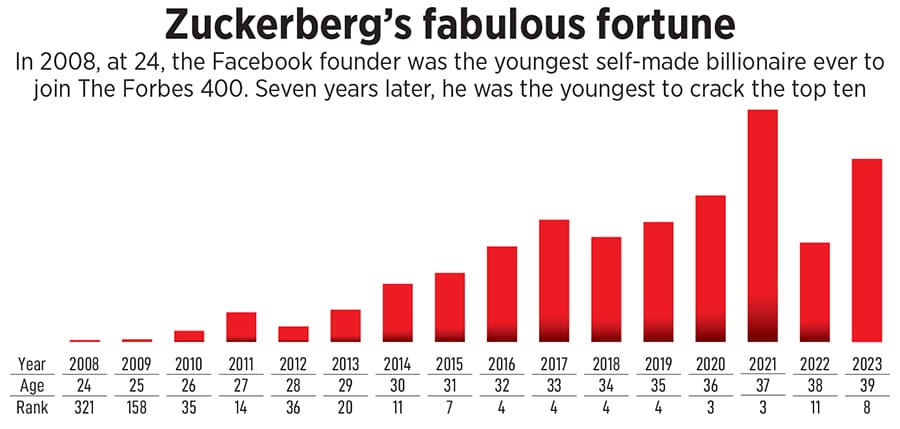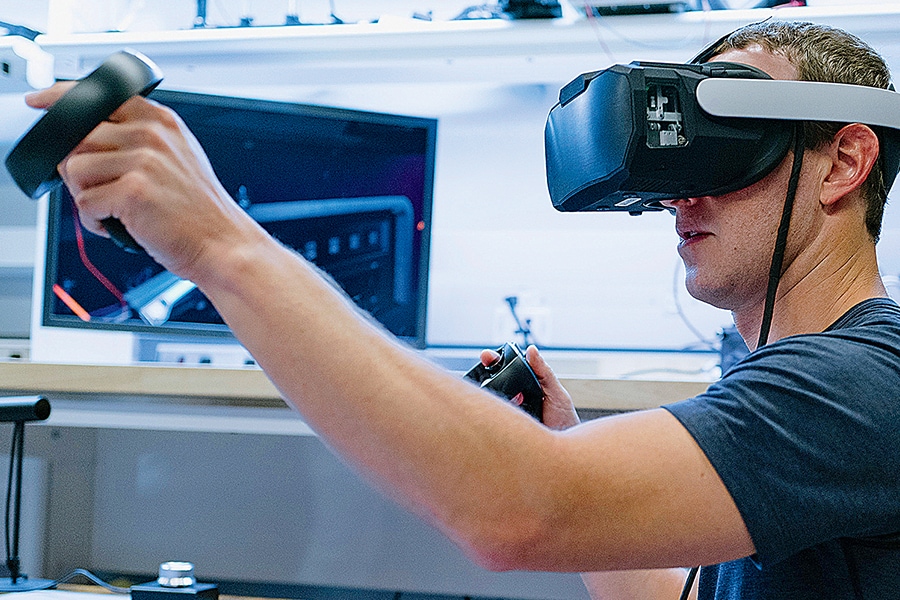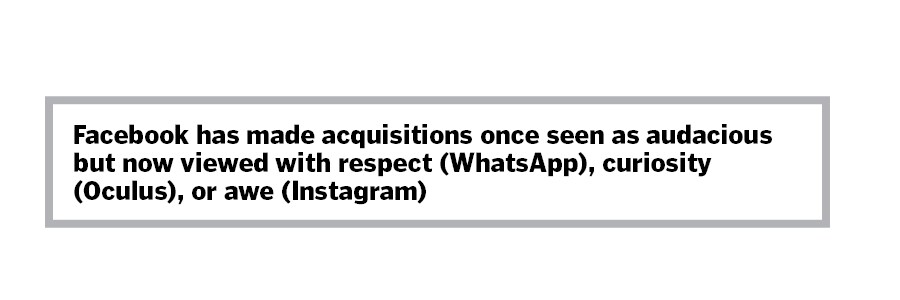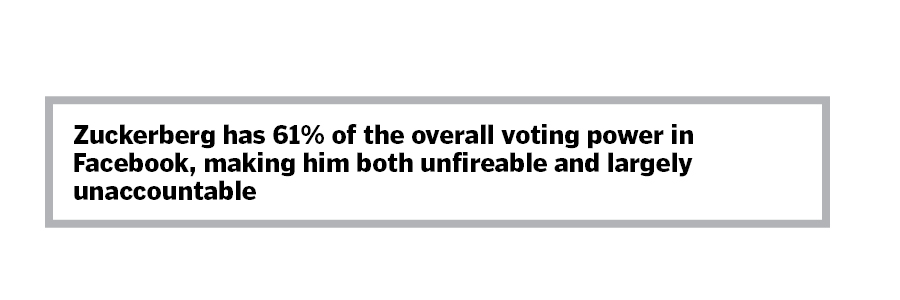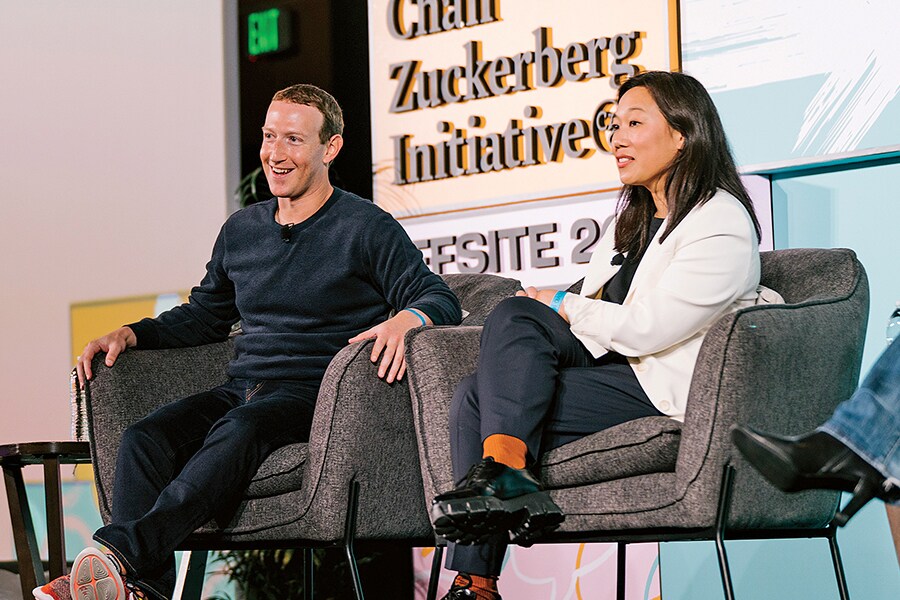
Mark Zuckerberg is having his Bill Gates moment
As social media's poster boy approaches 40, he's having his Bill Gates moment: Mellowing (a bit), maturing (a bit more) and upending his company with staggering confidence. It's a big bet on the future of daily human life—and his legacy
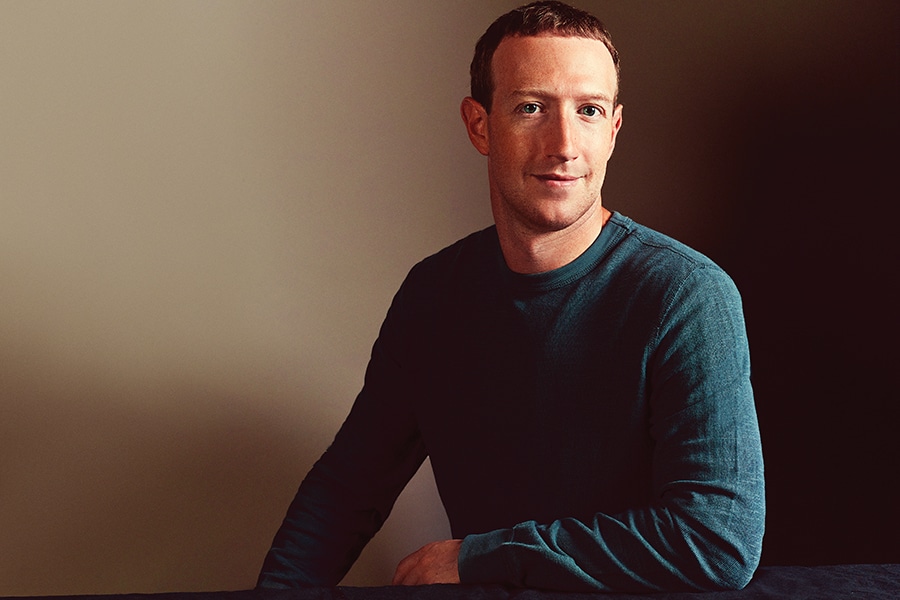 Mark Zuckerberg, who turns 40 next May, has a fortune estimated at $106 billion. Images: Guerin Blask for Forbes
Mark Zuckerberg, who turns 40 next May, has a fortune estimated at $106 billion. Images: Guerin Blask for Forbes
Sitting in a glass-walled conference room nicknamed The Aquarium, Mark Zuckerberg runs a cost/benefit analysis on the topic that has brought him headlines this year: Mixed martial arts. Today, he’s focusing on head shots versus body shots. “Getting hit in the face doesn’t hurt that much,” he deadpans. “It just does brain damage.”
The obviously-never-going-to-happen cage match with Elon Musk (“I assumed he wouldn’t do it”) put Zuckerberg back into the zeitgeist in the stupidest way, but it also served a business purpose: For much of his career, he has undermined his monumental achievements by wading through a swamp of missteps and democracy-crippling scandals. So the Musk beef was rare: An opportunity to play hero to the Tesla CEO’s petulant villain, to demonstrate that Facebook’s former “toddler CEO” has evolved into Meta’s statesman.
“The thing that determines your destiny isn’t a competitor,” he says. “It’s how you execute.”
Such reflection is well-timed. Zuckerberg will turn 40 next May, with a fortune estimated at $106 billion (No. 8 on The Forbes 400), a philanthropy arm designed for maximum impact and a commitment to transform one of the most important companies in the world, over which he has near total control. In many ways, he’s having his Bill Gates moment. Like Zuckerberg, Gates dropped out of Harvard to build a historically significant tech company. Like Zuckerberg, he was the nerdy boy-wonder face of his field. Like Zuckerberg, he produced fans, enemies and antitrust concerns on his brusque, relentless way to the top.
And then, in his 40s, Gates flipped the script. He transformed his image from unrepentant monopolist to global benefactor, with his company and legacy both winning because of it.



